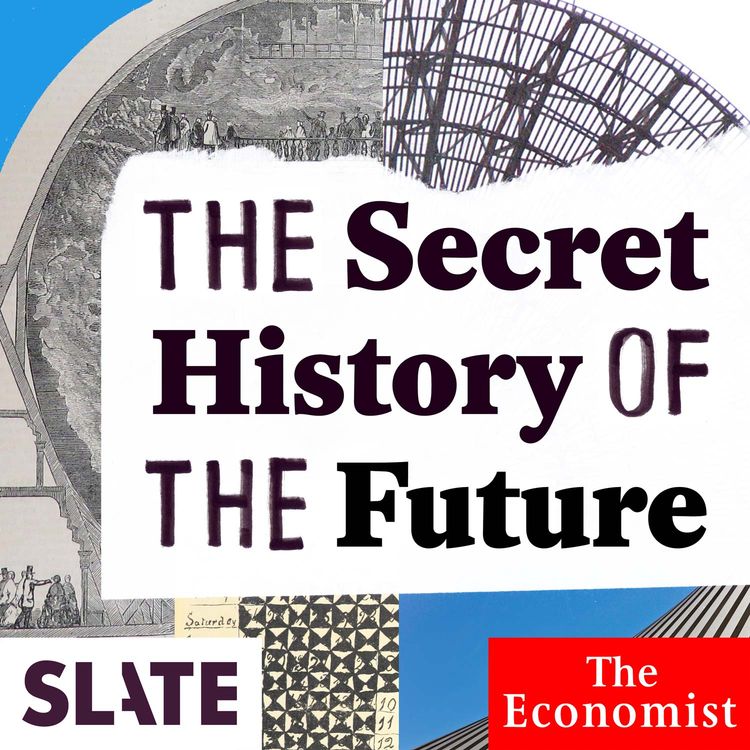Share

The Secret History of the Future
The Secret History of the Future: Meat and Potatoes
•
The potato seemed strange and unappetizing when it first arrived in Europe. But it grew into a wonder food that helped solve the continent’s hunger problems. Can its journey tell us what to expect from current efforts to replace animal meat with societally healthier meat alternatives made from plants, insects, or cells grown in petri dishes?
More episodes
View all episodes

The Secret History of the Future: New Media, Old Story
38:15|Radio was originally a social medium, as early radio sets (each of which could transmit as well as receive) turned cities into giant chatrooms, populated by Morse Code-tapping enthusiasts. But the excitement of this democratic, digital platform did not last, and radio was tamed by corporate interests in the 1920s. The utopian dream of platforms that are open and meritocratic has been reborn in the internet era in the form of blogging, and more recently podcasting. But can it ever come true?
The Secret History of the Future: A Brief History of Timekeeping
33:11|The first mechanical clocks were made to summon monks to prayer. Ever since, timekeeping technology has often been about control and obligation. But underneath a mountain in Texas, a new kind of clock is being built that’s meant to alter the way we think about time. Can it force us to connect our distant past with our distant future, tick by tick?
The Secret History of the Future: Salvation in the Air
33:36|At the dawn of the 20th century, chemists dreamed of extracting nitrogen from the air and turning it into a limitless supply of fertiliser. Sceptics thought they were crazy—it was possible in theory, but it was unclear if it could be done in practice. What happened next changed the course of 20th-century history, and provides inspiration to innovators pursuing a different dream today: sucking carbon dioxide out of the air to avert climate change. Might they not be quite so crazy after all?
The Secret History of the Future: Bug in the System
32:51|The first ever computer program was written in 1843 by Ada Lovelace, a mathematician who hoped her far-sighted treatise on mechanical computers would lead to a glittering scientific career. Today, as we worry that modern systems suffer from “algorithmic bias” against some groups of people, what can her program tell us about how software, and the people who make it, can go wrong?
The Secret History of the Future: Dots, Dashes and Dating Apps
33:04|In the 19th century, young people wooed each other over the telegraph. But meeting strangers on the wires could lead to confusion, disappointment, and even fraud. Do modern online dating apps have anything to learn from telegraph romances?
The Secret History of the Future: Mars on Earth
34:26|Polar exploration was the Victorian equivalent of the space race. Major powers vied to outdo each other, funding expeditions to the most inhospitable parts of the world as demonstrations of their supremacy over nature and each other. Today, the resulting tales of triumph and tragedy hold valuable lessons about what to do—and what not to do—as human explorers plan missions to Mars.
The Secret History of the Future: Unreliable Evidence
27:52|In the early 20th century a new forensic technique—fingerprinting—displaced a cruder form of identification based on body measurements. Hailed as modern, scientific, and infallible, fingerprinting was adopted around the world. But in recent years doubts have been cast on its reliability, and a new technique—DNA profiling—has emerged as the forensic gold standard. In assuming it is infallible, are we making the same mistake again?
The Secret History of the Future: Second Wind
30:16|For thousands of years we sailed our cargo across oceans using zero-emission, 100 percent renewable wind. Then we switched to ships that run on oil, creating a global maritime fleet that pumps greenhouse gases into the sky. Could we go back to wind-powered ships by rediscovering a clever nautical innovation that we abandoned a century ago?